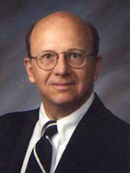 Courtesy of the Department of Anthropology
Courtesy of the Department of AnthropologyHalloween, Egypt, and one-fourth of the United States’ presidents all have a common thread.
The trick-or-treat holiday, land of the Giza Pyramids, and a portion of our Commander-in-Chiefs are connected by the Celtic heritage.
Halloween is a Celtic holy day and Egypt was almost conquered by Celtic mercenaries during the time of Alexander the Great. Around a quarter of the nation’s presidents, including Barack Obama, have Irish blood running through their veins.
The Celtic heritage also connects Northern Kentucky University to the other three. Last fall, the university’s Department of Anthropology introduced the Celtic Studies minor.
The minor draws classes mostly from the anthropology field, but includes history and English classes for its core requirements. Philosophy and political science classes are offered as electives.
Michael Simonton, both a lecturer for the department and Celtic Studies Director, studied for his Ph. D. at the National University of Ireland. His research ranges from studying North American Indians to peasant studies to gerontology, the study of aging. His current studies focus on the migration of Celtic people, specifically during the Iron Age.
Though pure interest in all things Celtic is reason enough for him to get involved in the program he said it would also be of interest to students of Celtic descent. However, if you’re involved with business, the new minor offers insight into the field.
‘Until recently, most of the computerized banking was being done in Ireland,’ Simonton said.
Ireland started what is known as the Celtic Tiger Economy back in the 1990s. American banks would send e-mail transactions at night. Since Ireland is five hours ahead of the United States, they were able to process the information. When finished, the Irish would e-mail the information back for American consumers.
Anthropology majors may like the minor for the fact that recent archaeological sites hold Celtic artifacts. Simonton said that the true founders of modern Europe were not Roman or Greeks, but Celts.
‘The Greeks and Romans just had more impressive architecture,’ he said.
Like the courses themselves, the faculty participating in the program comes from various departments. Simonton said math professor Daniel J. Curtin is a lover of all things Celtic. Teresa De Zarn works in the theatre department, but also is part of the Irish American Theater Company located in Cincinnati. Cathy Costello, who works for WNKU, runs a Celtic Sunday afternoon program.
Celtic Europe, or ANT 370, is Simonton’s preference. The class studies the origin of Celts and lifestyle and brings it up to modern times. While he doesn’t mind teaching the modern part, he admits that he likes the ancient studies more.
‘I really like the ancient stuff, the hacking, the fighting,’ he said. In this respect, the Celtic Studies program is significant to the tri-state region.
One of the deadliest anti-immigrant riots in American history took place in Louisville back in 1855. The ringleaders were called the Know Nothings, a political party afraid of losing control of the Louisville City Council. Driven by an anti-immigrant press, the Know Nothings ended the lives of as many as 150 German and Irish immigrants.
Along with the minor come opportunities for NKU, its students, the program and Simonton in the near future.
In the summer of 2011, the university hopes to host an international Celtic festival in conjunction with the EuroCeltic Institute. Musicians, artists, artifacts and international scholars will be on campus. Hosting the event could potentially put the university on the international map. In turn, there will be more recognition of the minor among NKU’s students.
Students participating in performing arts have the opportunity to participate in the event as well. Anyone interested in Celtic heritage would be able to immerse themselves in all things Celtic. He wants to get the community involved, too.
As for Simonton, he’s just happy to be part of it all.

